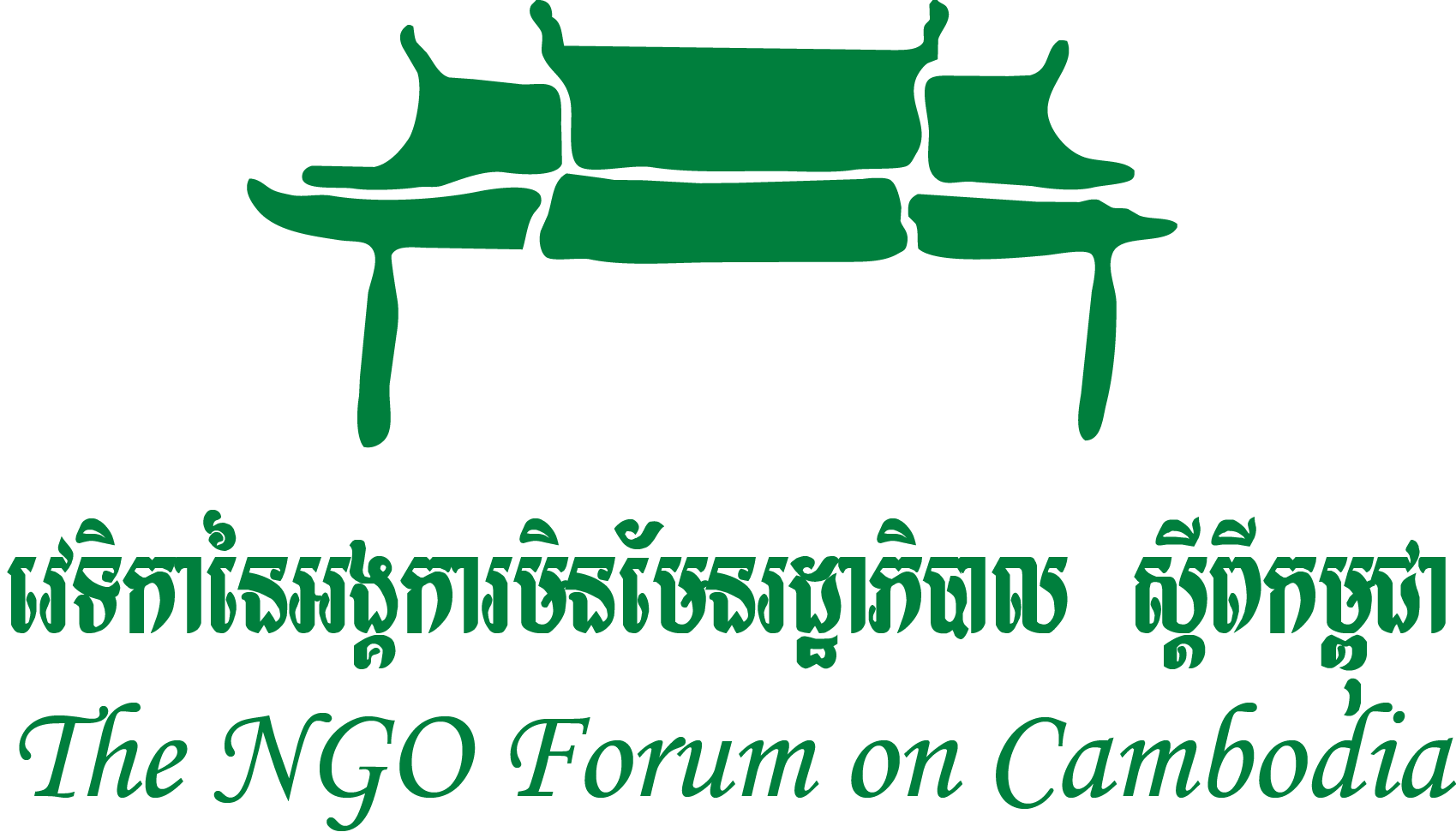Forum on the Commitment of Political Parties to Respond to Local Development Issues
- ngofmail
- May 19, 2017
- 3 min read

The Forum was held on 19th May 2017 at Tonle Bassac Restaurant II, in Phnom Penh.
The organizer of the Forum was NGO Forum on Cambodia (NGOF). The number of participants was 245 (86 women). The participants were from various NGOs/CSOs (approximately 53 NGOs/CSOs), different communities from all country, 8 students, 3 officials from the Government and local media (26 medias: radio, newspaper and TV).
NGOF invited 12 representatives from political parties who are participating in the upcoming communal elections to present their agendas and discuss with public. These 12 parties were:
– Beehive Social Democratic Party (BSDP)– Cambodia Indigenous People's Democracy Party (CIPDP)– Cambodia National Rescue Party (CNRP)– Cambodia Nationality Party (CNP)– Cambodian People's Party (CPP)– Cambodian Youth Party (CYP)– FUNCINPEC Party (FP)– Grassroots Democracy Party (GDP)– Khmer National United Party (KNUP)– Khmer Power Party (KPP)– League For Democracy Party (LDP)– Republican Democracy Party (RDP)

This event was divided into 2 days.First day, Thursday 18th May, was designated for communities and NGOs/CSOs. 125 participants (49 women) were divided into 3 working groups in which they discussed the issues and questions they wanted to ask the politicians. As the result of discussions, 3 questions of each working group were chosen.
The first working group focused on the Strengthening Law Enforcement and Public Services. These 3 questions came from the discussion:1. Does your party have any methods to address, deal and control the grassroots issues (e.g. safety of villages/communes, land disputes, destruction of natural resources and public services)? And how will you strengthen equal law enforcement in communes/Sangkat?2. Does your party have any plans on how to effectively reform the public services for citizens?3. Does your party have any mechanisms to monitor the implementation of the anti-corruption law in the grassroots?

The Safety, Welfare and the Environment were discussed in the second group and these 3 questions emerged:1. How will your party ensure effective and better education system, Social Welfare policy and Safety village commune/Sangkat Policy?2. Does your political party have any measures ensuring that the management and use of natural resources will be in line with climate change?3. Does your political party have any mechanisms for effective resolving land disputes in the grassroots?
The third working group discussed Development and Democratic Mechanisms and they chose these 3 questions:1. Does your political party have any mechanisms of the social land concession distribution to farmers without any land to avoid migration?2. Does your political party have any program on how to promote domestic products and how to control imports from the neighbouring countries that are affecting local agricultural production?3. Does your political party have any policy about the promotion of the right to freedom of assembly and expression without any restrictions, e.g. citizens can engage in advocacy of their right to property without any intimidation or violation.

The Political forum took place on the second day, 19th May. 12 political parties were invited to express their program and to discuss on questions raised from public. However, only 9 parties appeared, Cambodian People's Party refused the invitation. Forum offered great opportunity to civil society to meet politicians in person and to pose questions they were interested in.
The day was split in two sessions. The session at the morning was given to the representatives from political parties. They had enough time to present their programs. The afternoon was dedicated to the audience. People from communities could ask politicians about the questions which were discussed the day before. Each representative had 3 minutes to answer.At the end of the session, there was a space for public to ask individual questions.
Moreover, the Political Forum was aimed at spreading information about the upcoming elections amongst public through media.
In conclusion, only few political parties had a concrete program and some of the representatives did not answer all posed questions.All NGOs/CSOs will follow up the commitments of the winning political party.




